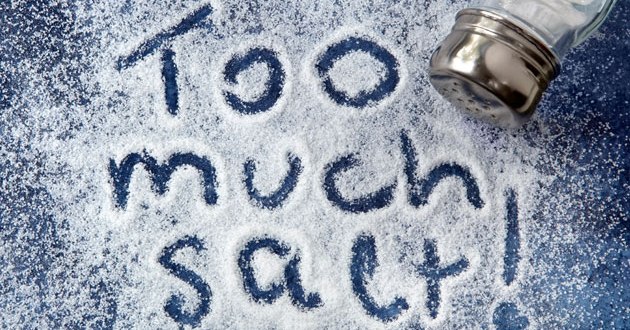Health Risks of Having Excess Salt in Your Diet

A diet heavy in sodium can cause puffy eyes bags, headaches, and a craving for calorie-laden drinks in the short run. Ultimately, it not only sends blood pressure high, but may also increase chances of developing stomach problems, osteoporosis and kidney stones. Yet despite decades of government warnings and reams of new research about the myriad health hazards of too much salt, we now eat up to 50 percent more than we did 30 years ago , feasting on a steady Diet of packaged foods and restaurant fare that unbeknownst to many delivers a whopping 80 percent of our sodium.
Salt Balance
Your body has some mechanisms to ensure you maintain a proper sodium concentration in your cells and tissues. When sodium is scarce, your sweat becomes dilute and your kidneys reduce on urine production, helping keep sodium in your body. When you consume too much sodium, your kidneys use water to make abundant, salty urine. But if your intake of sodium becomes too high, your kidneys are unable to excrete enough salt and your body holds on to more water to dilute the additional sodium. This increases the amount of fluid around your cells and also your blood volume, raising your blood pressure and potentially causing long-term health problems.
Osteoporosis
A high salt eating can cause losses calcium through the urine which can lead to bone demineralisation and significantly increase the risk of osteoporosis, a bone condition causing fragility and breakages. Although osteoporosis is most common amongst older individual, studies have shown that the effect of salt on calcium metabolism can be detected in children and continue in to adult life. This increases the risk of osteoporosis in life, mostly for girls.
Read about: Osteoporosis – Treatment Is Required
Obesity
Whilst salt is not a direct cause of obesity it is a major influencing issue through its effect on soft drink use. Salt makes you thirsty and enhance the quantity of fluid you drink. 31% of the fluid drunk by 4-18 year olds is sugary soft drinks 13 which have been shown to be connected to childhood obesity.
Read about: Obesity and Overweight – Major Causes
High Blood Pressure
When the volume of your blood increases because of too much sodium, your blood puts high pressure on the walls of your arteries, high your blood pressure. The increased pressure can affect vessel walls, stiffening them and making them less elastic. When blood volume is high and arteries lose their elasticity, your heart works harder to move your blood through your circulation so it can get to all of your organs. High blood pressure, or hypertension, generally has no symptoms, so you might have the condition for years without knowing it.
Read about: Hypertension High Blood Pressure
Kidneys Stones
One of the ways doctors assess how well our kidneys are working is with a test called glomerular filtration rate. Glomeruli are small sieves in the kidneys that filter waste from the blood. The higher our glomerular filtration rate, the better our kidneys are at getting rid of waste.
Too much salt intake even with only a minimal increase in blood pressure, can lead to decreased rates of glomerular filtration, which are a sign of chronic kidney disease, and, if not checked, kidney failure.
Read about: Kidney Stones – Renal Lithiasis
Brain
Intake excess salt causes the sympathetic nervous system to over-react to stressful situations, pumping out chronically high levels of stress hormones. Increased blood pressure variability means we are prone to having short-term spikes in blood pressure, which physicians had usually thought were benign as long as overall blood pressure was normal. But to a greater extent, science is finding that increased blood pressure variability, in and of itself, is connected with an increased risk of cardiovascular events and death.
Read about: Brain Concussion
By : Natural Health News




